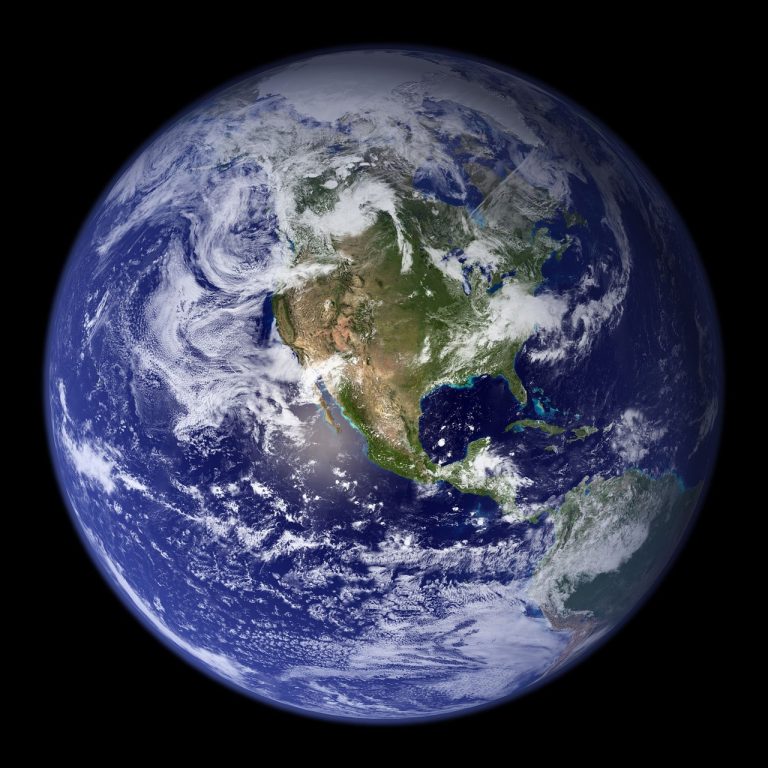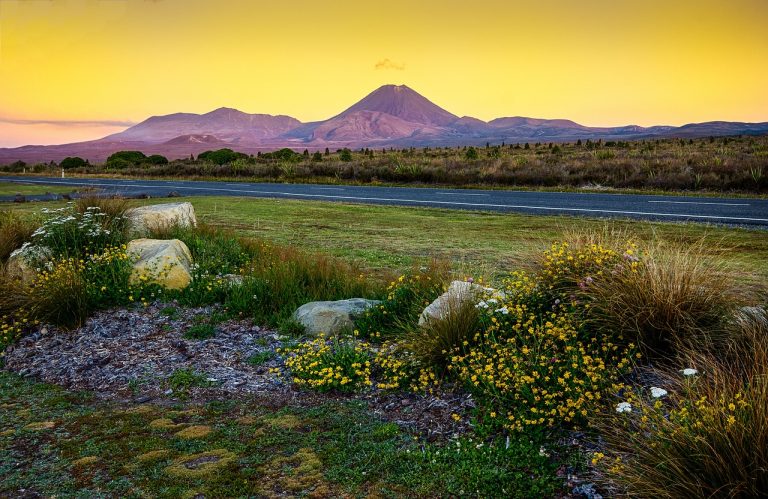
This article explores the most debated and impactful news stories that have shaped global discourse over the past year, highlighting their significance and the reactions they sparked worldwide. In a world where information travels faster than a speeding bullet, it’s no wonder that certain stories have ignited fierce discussions and heated debates. From political upheavals to climate disasters, these events have not only captured headlines but also the hearts and minds of people around the globe.
Imagine waking up one day to find your social media feeds flooded with posts about protests erupting in various countries. It’s like a wave crashing onto the shore, unstoppable and powerful. This year, political turmoil has dominated the news cycle, with citizens standing up against oppressive regimes and demanding change. The implications of these movements are profound, as they challenge the very foundations of governance and civil rights.
But it’s not just politics that has taken center stage. The climate crisis has continued to rear its ugly head, reminding us that our planet is in distress. Severe weather events, from wildfires to hurricanes, have forced discussions about environmental policies and our collective responsibility to protect the Earth. The urgency is palpable, and it’s clear that action is needed now more than ever.
In the realm of social justice, movements advocating for equality have gained unprecedented momentum. These campaigns are not just about raising awareness; they are about enacting real change. The societal impact of these movements can be seen in the shifts in public opinion and policy reforms, making it clear that voices united can indeed create ripples of change.
As we navigate through these stories, we must also confront the rapid technological advancements that bring both excitement and ethical dilemmas. Innovations in AI and data privacy have sparked debates that challenge our understanding of freedom and security. It’s a double-edged sword—how do we embrace progress while safeguarding our rights?
Finally, the ongoing global health crises, including pandemics and vaccine distribution challenges, have underscored the importance of international cooperation. The world is interconnected, and as we face these challenges together, we must learn from each other to build a healthier future.
Political Turmoil and Protests
The past year has been nothing short of a rollercoaster ride when it comes to political unrest. Across the globe, from the streets of Iran to the squares of France, protests have erupted, fueled by a mix of discontent and demands for change. Have you ever wondered what drives people to take to the streets, risking their safety for a cause? It’s a powerful blend of frustration and hope, where citizens rally together for a common goal. These protests are not just about dissent; they’re a cry for justice and freedom.
In many cases, the protests were sparked by specific incidents—like police brutality, economic hardship, or political corruption. For instance, in Brazil, the outcry against government policies led to massive demonstrations, showcasing the people’s desire for transparency and accountability. Similarly, the protests in Russia reflected widespread dissatisfaction with the political landscape, igniting a conversation about civil rights that resonated far beyond its borders.
These movements are not just isolated events; they represent a larger trend of citizens demanding their voices be heard. In fact, a recent survey highlighted that over 60% of people in various countries feel that protests are a necessary means of expressing dissent. The implications of these protests are profound, as they challenge existing governance structures and push for reform. However, the backlash can be severe, often resulting in crackdowns that raise serious questions about human rights and the role of governments in suppressing dissent.
As we look toward the future, the question remains: will these protests lead to meaningful change, or will they fizzle out as many have before? Only time will tell, but one thing is certain—the world is watching, and the voices of the people are louder than ever.
Climate Change and Environmental Disasters
The year has been a stark reminder of the urgent climate crisis we are facing. From devastating wildfires to catastrophic floods, the impacts of climate change have become impossible to ignore. These environmental disasters have not only caused immense damage but have also sparked a global conversation about our responsibility towards the planet. Can we afford to stand idly by while our Earth suffers?
In 2023, several significant events captured the world’s attention:
- Wildfires in Australia: These fires, fueled by extreme heat and prolonged drought, devastated vast areas, leading to loss of biodiversity and displacement of communities.
- Hurricanes in the Caribbean: The intensity of hurricanes has increased, with storms like Hurricane Maria causing unprecedented destruction and highlighting the need for better disaster preparedness.
- Melting Ice Caps: The alarming rate at which polar ice is melting has raised sea levels, threatening coastal cities and ecosystems.
These disasters are not just isolated incidents; they serve as a wake-up call to governments and individuals alike. The global response has varied, with some nations stepping up their climate policies while others lag behind. The urgency is palpable—how many more disasters will it take before we collectively decide to act?
Furthermore, the connection between climate change and social justice cannot be overlooked. Vulnerable communities often bear the brunt of environmental disasters, leading to a cycle of inequality. As we navigate these challenges, we must ask ourselves: Are we doing enough to protect those most affected?
In conclusion, the climate change narrative is intertwined with our everyday lives. As we witness these environmental disasters unfold, it is crucial to advocate for sustainable practices and support policies that prioritize our planet’s health. After all, if we don’t take care of our home, who will?
Social Justice Movements
The past year has been a whirlwind for social justice movements around the globe, with voices rising and narratives shifting in unprecedented ways. From the streets of major cities to digital platforms, movements advocating for equality and reform have captured the world’s attention. Have you noticed how these movements aren’t just about protests anymore? They’re evolving into powerful forces for change that challenge the status quo and demand accountability from those in power.
One of the most significant developments has been the surge of grassroots campaigns focusing on various issues, including racial equality, gender rights, and climate justice. For instance, the Black Lives Matter movement continued to gain traction, sparking discussions about systemic racism and police reform. Meanwhile, the fight for gender equality saw a resurgence with campaigns advocating for women’s rights and protections against violence. Isn’t it fascinating how these movements interconnect, forming a web of activism that amplifies their messages?
Moreover, social media has played a crucial role in mobilizing support and spreading awareness. Platforms like Twitter and Instagram have become battlegrounds for ideas, where hashtags can ignite global conversations overnight. Consider the impact of trending hashtags like #MeToo and #BlackLivesMatter. They have not only raised awareness but also fostered a sense of community among activists worldwide. This digital age has transformed the way we communicate and organize, making it easier than ever to rally support for a cause.
However, these movements are not without their challenges. As they gain momentum, they also face pushback from those resistant to change. The backlash can be fierce, often manifesting in attempts to undermine the legitimacy of these movements. It’s a stark reminder that while progress is being made, the fight for justice is ongoing. In this landscape, the resilience of activists continues to inspire hope and action, proving that the quest for social justice is far from over.
Technological Advancements and Ethical Dilemmas
In today’s fast-paced world, technological advancements are reshaping our lives in ways we could never have imagined. From artificial intelligence (AI) to biotechnology, these innovations promise to enhance our daily experiences and solve some of humanity’s most pressing problems. However, with great power comes great responsibility, and the ethical dilemmas arising from these technologies are sparking heated debates across the globe.
Take AI, for example. It’s like having a super-smart assistant that can analyze data faster than a speeding bullet. But when we rely on algorithms to make decisions, we must ask ourselves: Who is accountable if something goes wrong? The potential for bias in AI systems raises concerns about discrimination and fairness. Imagine a world where job applications are filtered by a machine that doesn’t recognize the value of diversity. This scenario is not far-fetched and has already occurred in various industries.
Moreover, the rise of surveillance technology poses significant privacy concerns. While these tools can enhance security, they can also infringe on individual rights. The balance between safety and privacy is a tightrope walk that society must navigate carefully. In fact, a recent survey revealed that over 60% of people feel uncomfortable with the level of surveillance in their daily lives.
| Technology | Ethical Dilemma |
|---|---|
| Artificial Intelligence | Bias and accountability |
| Biotechnology | Genetic modification ethics |
| Surveillance Tech | Privacy vs. security |
As we move forward into this brave new world, it’s crucial for us to engage in these conversations. Are we ready to embrace the future while ensuring that ethical considerations are at the forefront? The road ahead is filled with opportunities, but it also requires us to tread carefully, balancing innovation with our fundamental values.
Global Health Crises
The past year has been a rollercoaster ride when it comes to global health. With the lingering effects of the pandemic still echoing through our lives, we’ve witnessed a series of health crises that have raised eyebrows and sparked discussions worldwide. From vaccine distribution challenges to the emergence of new variants, it’s clear that our global health systems are under immense pressure. Have you ever thought about how interconnected our health really is? One country’s outbreak can ripple across continents, reminding us that we are all in this together.
One of the most pressing issues has been the uneven distribution of vaccines. While some countries have reached high vaccination rates, others are still struggling to get their hands on enough doses. This disparity has not only fueled debates about equity but has also led to a rise in vaccine hesitancy in various regions. The World Health Organization (WHO) has been calling for a more coordinated global response, urging wealthier nations to share their surplus vaccines with those in need. Isn’t it shocking to think that while some people are getting their third booster shot, others are still waiting for their first?
Moreover, the emergence of new variants has kept health officials on their toes. The Delta and Omicron variants taught us that the virus is far from finished, leading to renewed lockdowns and travel restrictions in many places. The following table illustrates the timeline of significant health developments over the past year:
| Date | Event |
|---|---|
| January 2023 | New variant detected in multiple countries |
| March 2023 | Global vaccination campaign launched |
| June 2023 | WHO declares a health emergency |
In addition to these challenges, we’ve seen a rise in mental health issues, exacerbated by isolation and uncertainty. People are more aware than ever of the importance of mental well-being, leading to an increase in advocacy for mental health resources. As we navigate these turbulent waters, the question remains: how can we build a more resilient global health system for the future? The answer lies in collaboration, innovation, and a commitment to putting people’s health above all else.




